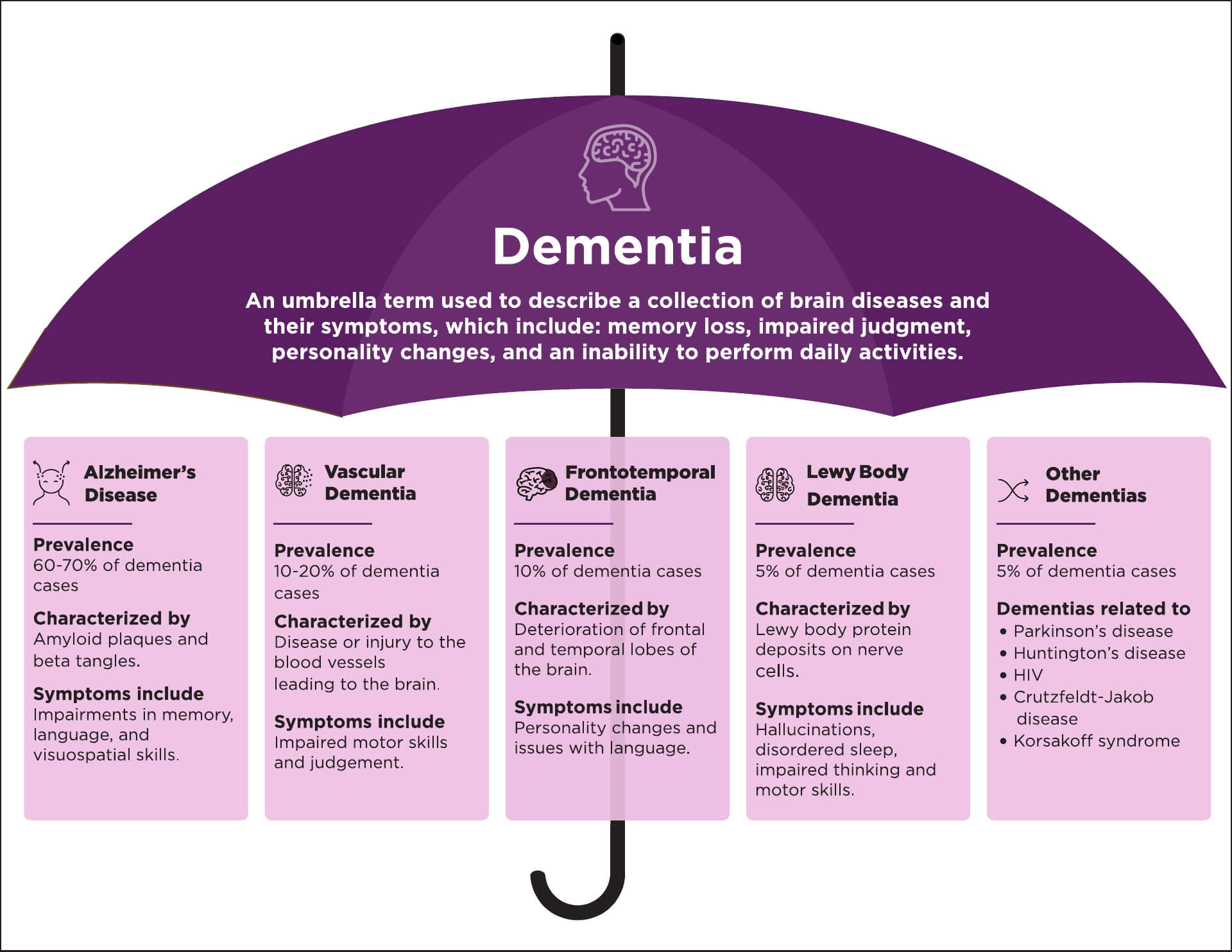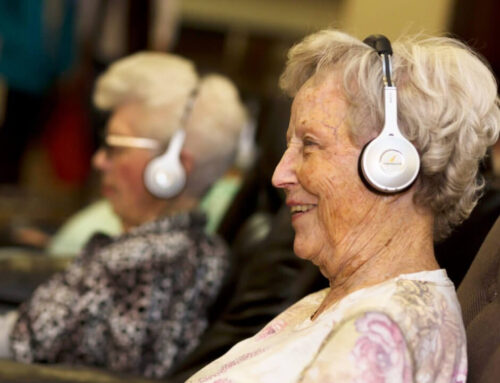Dementia is an umbrella term that applies to a variety of cognitive brain diseases and disorders. The commonality of diseases is that the conditions affect the person’s ability to recollect details about their lives, think clearly, and use reasoning.
As the diseases progress, the individual faces difficulties when performing the activities of daily life such as bathing, dressing, oral hygiene, and preparing their own meals. By gaining a better understanding of the diseases, seniors learn what to expect as the disease progresses.
What Are the Signs and Symptoms?
The person experiences memory loss and becomes disoriented. They’ll face difficulties recollecting words for common objects and become confused and frustrated. Many individuals with dementia have poor judgment, difficulty speaking, face difficulties when trying to read or write, and are likely to wander around the neighborhood and become lost.
As the disease progresses, the person may hallucinate and become paranoid. They are likely to act impulsively, lose all empathy for the feelings of others, and experience vertigo when walking and moving around.
By moving into a memory care community, seniors who have been diagnosed with dementia get services to improve cognitive abilities and help them complete normal daily tasks. The focus of the programs is to keep the seniors living independently as long as possible.
What Are the 10 Warning Signs of Dementia?
The ten signs include memory loss that affects day-to-day capabilities, difficulties when performing familiar tasks, language problems, disorientation, the loss of time, impaired judgment, abstract thinking difficulties, misplacing things, mood or behavior changes, personality changes, and the loss of initiative.
If a loved one notices these signs, they should recommend a visit to the senior’s doctor for a full evaluation. By reviewing assisted living vs memory care, the seniors discover that living in a senior community could be helpful but won’t take away their freedom to live on their own.
What Are the Causes of Dementia?
The disease is caused by nerve cell damage or the development of plaque on the brain. The protein deposits affect the brain’s ability to function properly and damage different areas of the brain in each form of the disease. Some seniors experience the initial symptoms due to vitamin deficiencies and require medications to correct these underlying factors.
What Are the Most Progressive Forms of Dementia?
Alzheimer’s and vascular dementia progress the fastest. With Alzheimer’s disease, the condition could be caused by three gene mutations that are passed to offspring and increase the risk of apolipoprotein E4 in the brain. The plaques can become clumped on the brain and cause fibrous tangles that destroy healthy fibers and neurons.
With vascular dementia, the blood vessels that carry blood to the brain are damaged and increase the risk of stroke or heart attack. A resident with vascular dementia faces major issues when problem-solving and trying to stay focused or organized.
Other Disorders That Cause Dementia
Huntington’s disease, traumatic brain injuries, Creutzfeldt-Jakob disease, and Parkinson’s disease can lead to dementia and cognitive deficits. Infections and immune disorders can produce dementia-like symptoms as a result of fevers and the body attempting to fight the infection. Metabolic problems and endocrine abnormalities such as hypoglycemia may result in personality changes and dementia symptoms, but the effects are temporary.
A Wonderful Home For Seniors
Palm Vista Senior Living offers wonderful apartments for seniors with all health challenges and gives them ample space and privacy. The community offers a wealth of amenities that make life for seniors easier and more enjoyable. Families and seniors can learn more about the community and assisted living in Palmdale CA by setting up a tour of the community now.
Dementia is an umbrella classification for a variety of brain and cognitive diseases that are progressive and detrimental. The person will experience a variety of symptoms depending on what form of the disease they have. With memory care services, the seniors can retain more of their memory and relearn how to complete activities of daily life.
A senior living community can make life easier for seniors and provide a number of services. The communities offer transportation, meal preparation, housekeeping, and many other amenities.
The primary focus of the communities is to keep residents living independently for as long as possible. By learning more about dementia and considering individual needs, seniors and their loved ones can find a community that is right for them.






